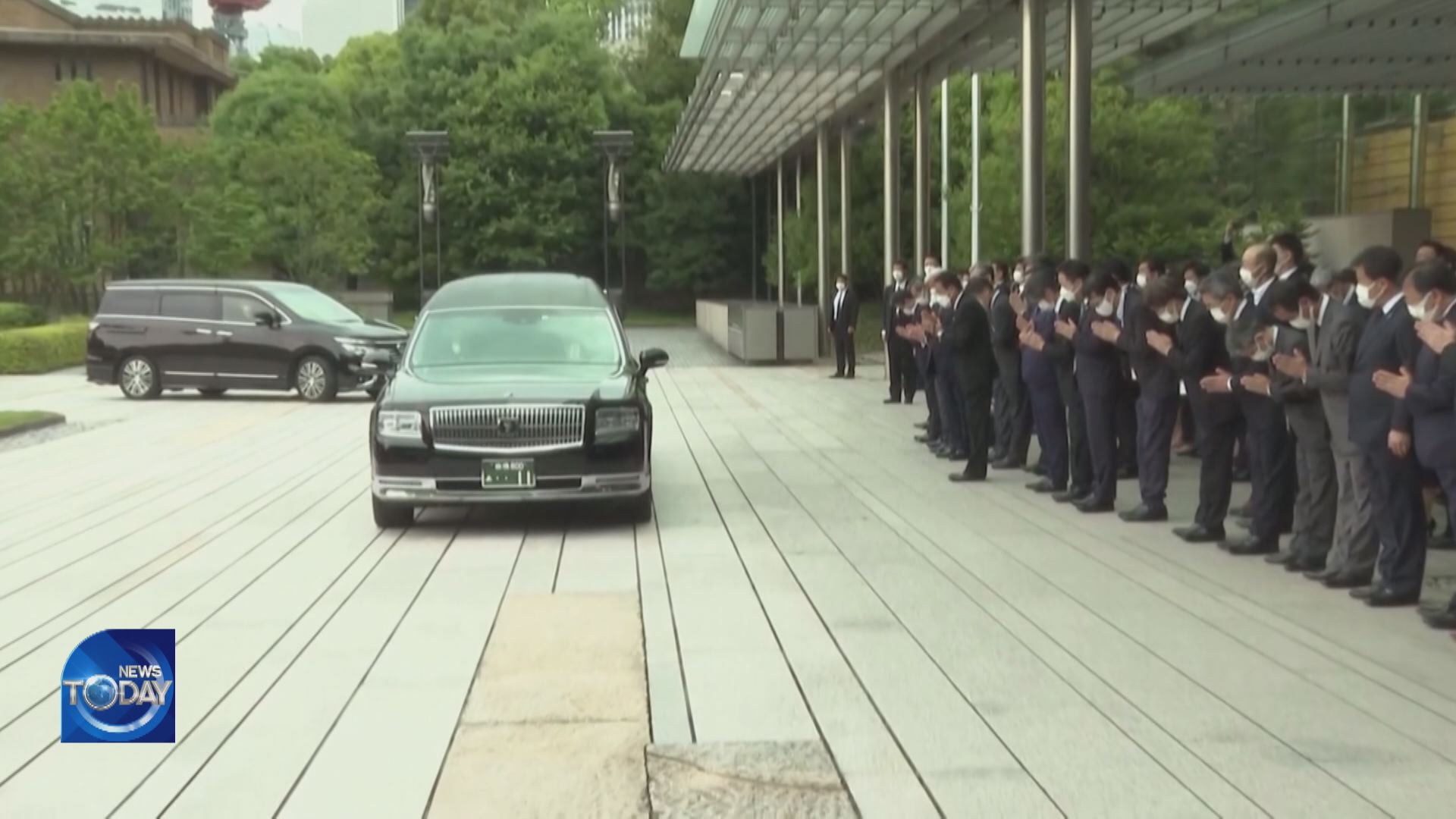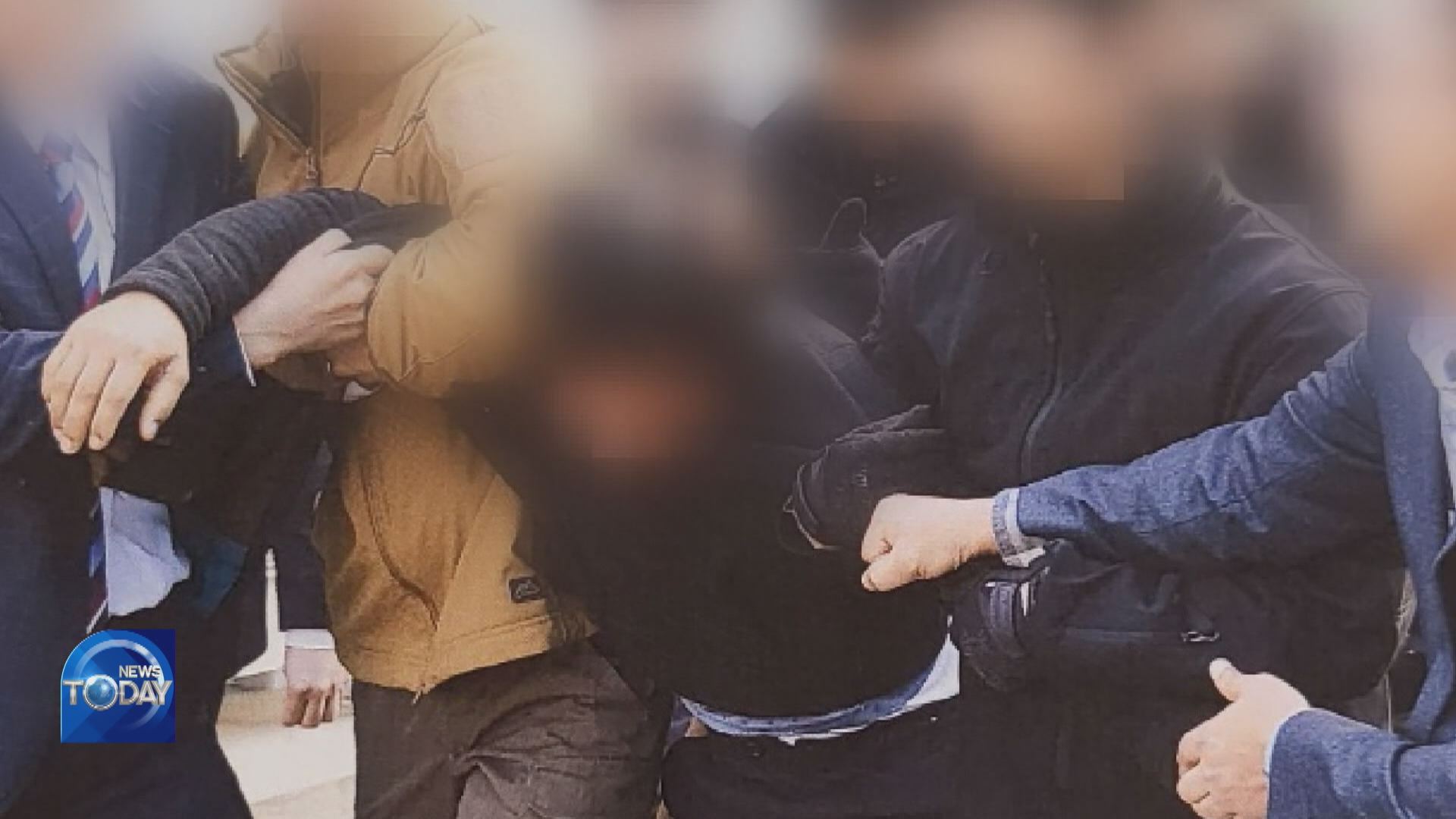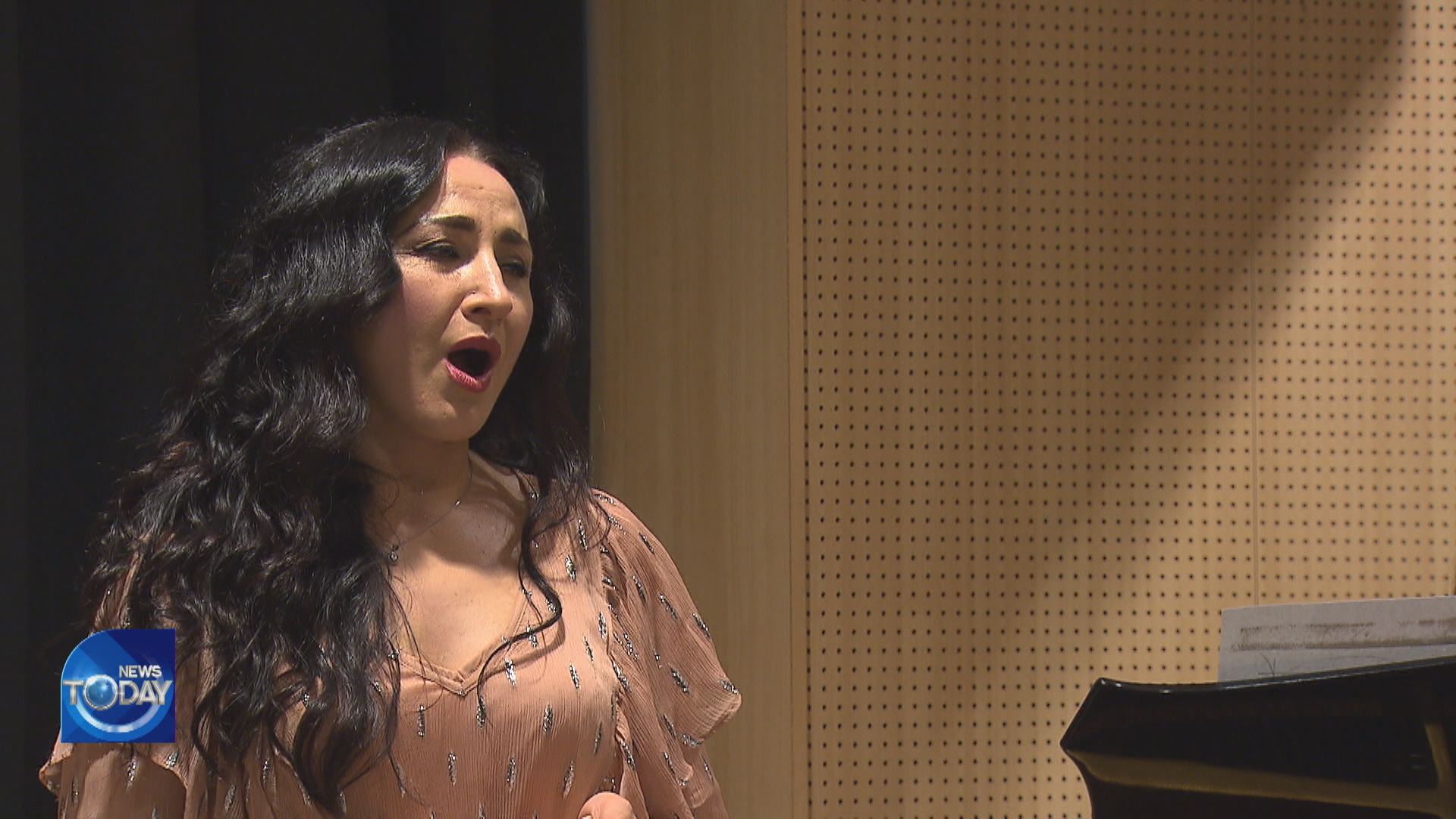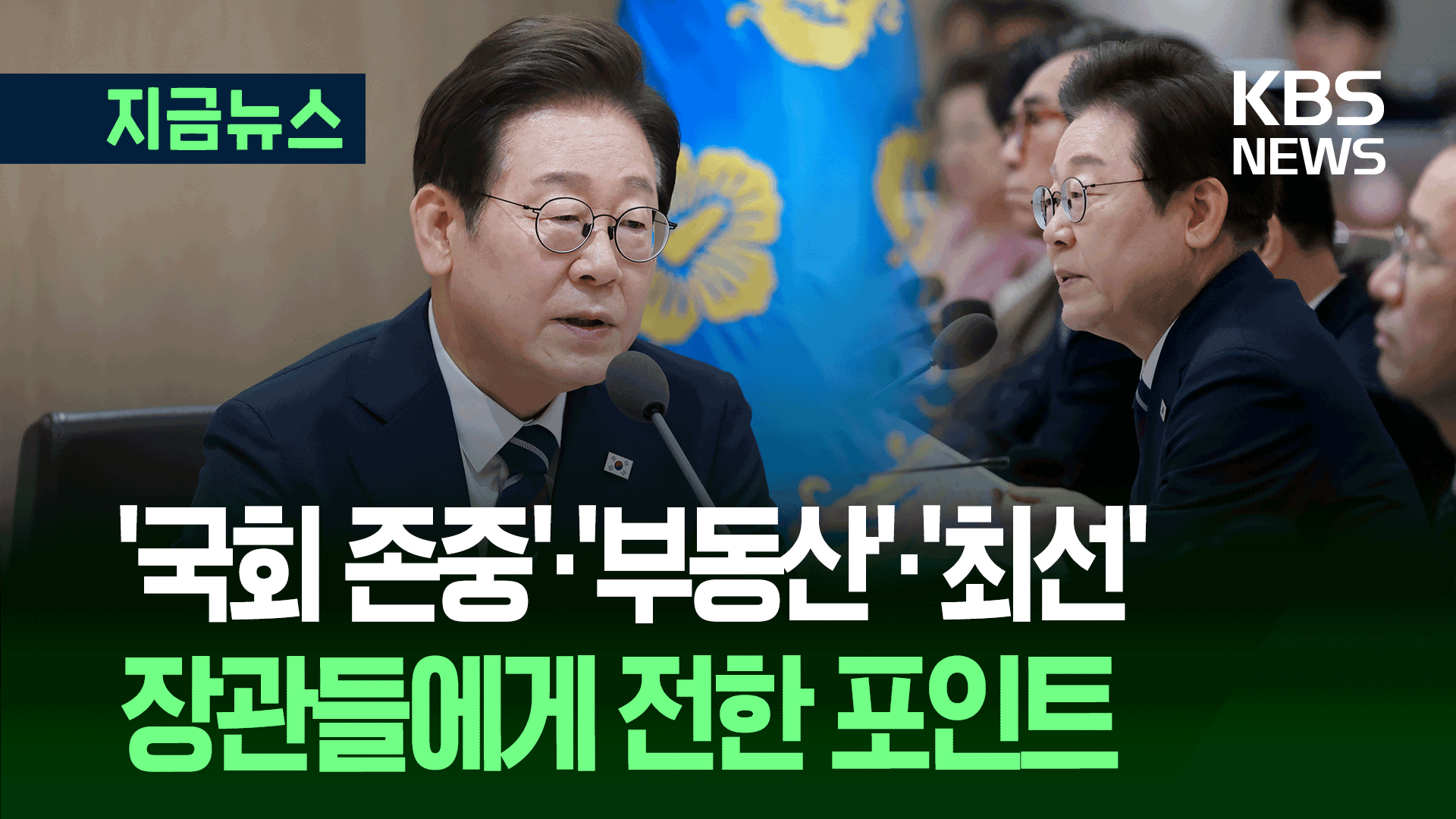CONDOLENCE DELEGATION TO VISIT JAPAN
입력 2022.07.14 (15:04)
수정 2022.07.14 (16:45)
읽어주기 기능은 크롬기반의
브라우저에서만 사용하실 수 있습니다.
[Anchor Lead]
The South Korean government has decided to send Japan a condolence delegation headed by Prime Minister Han Duck-soo over the death of former Japanese Prime Minister Shinzo Abe. Seoul intends to use the visit as a chance to improve relations with Tokyo. But some critics say the government is overly focusing on improving ties with Japan when Japanese Prime Minister Fumio Kishida is moving to begin full-scale discussions on a constitutional amendment.
[Pkg]
Shinzo Abe and eight other former Japanese prime ministers died over the past 3 decades. The South Korean government sent condolence delegations to the country seven times. The delegations were led by foreign ministers twice and by ambassadors to Japan four times. For the funeral of former Prime MinisterKeizo Obuchi in 2000, then President Kim Dae-jung traveled to Japan to attend it. During the same period, South Korea received foreign condolence delegations for the funerals of 3 former presidents. As the heads of its condolence delegations, Tokyo dispatched ex PMs, a former speaker of the House of Representatives and a chairman of the Korea-Japan Parliamentarians' Union. Compared to the delegations Japan sent, Seoul's dispatch of Prime Minister Han Duck-soo is regarded as an exceptional decision. This move shows that the government is working hard on improving ties with Japan.
[Soundbite] Prof. Lee Young-chae(Keisen Univ., Japan) : "It seems that the S. Korean gov’t wants to make some progress this time. Japan's conservative news outlets say S. Korea is more enthusiastic than Japan."
Meanwhile, Seoul is avoiding commenting on sensitive issues regarding Japan. After achieving a sweeping victory in the Upper House election, Japanese Prime Minister Fumio Kishida pledged to push for a quick amendment of the Constitution. But Seoul's Foreign Ministry declined to elaborate on Tokyo's domestic political issues. This is a far cry from China's urge for Japan to address historical issues seriously.
[Soundbite] Prof. Nam Ki-jung(Seoul Nat'l Univ.) : "I am afraid that It will improve relations with Japan, discarding principles. It shouldn’t accept solutions that leave negative consequences."
Some experts say it is necessary for the government to rapidly draw up measures about the issue of cashing in Japanese companies' assets in damages for wartime forced labor. There are also calls on the government to refrain from bowing down in the process of working to improve bilateral ties.
The South Korean government has decided to send Japan a condolence delegation headed by Prime Minister Han Duck-soo over the death of former Japanese Prime Minister Shinzo Abe. Seoul intends to use the visit as a chance to improve relations with Tokyo. But some critics say the government is overly focusing on improving ties with Japan when Japanese Prime Minister Fumio Kishida is moving to begin full-scale discussions on a constitutional amendment.
[Pkg]
Shinzo Abe and eight other former Japanese prime ministers died over the past 3 decades. The South Korean government sent condolence delegations to the country seven times. The delegations were led by foreign ministers twice and by ambassadors to Japan four times. For the funeral of former Prime MinisterKeizo Obuchi in 2000, then President Kim Dae-jung traveled to Japan to attend it. During the same period, South Korea received foreign condolence delegations for the funerals of 3 former presidents. As the heads of its condolence delegations, Tokyo dispatched ex PMs, a former speaker of the House of Representatives and a chairman of the Korea-Japan Parliamentarians' Union. Compared to the delegations Japan sent, Seoul's dispatch of Prime Minister Han Duck-soo is regarded as an exceptional decision. This move shows that the government is working hard on improving ties with Japan.
[Soundbite] Prof. Lee Young-chae(Keisen Univ., Japan) : "It seems that the S. Korean gov’t wants to make some progress this time. Japan's conservative news outlets say S. Korea is more enthusiastic than Japan."
Meanwhile, Seoul is avoiding commenting on sensitive issues regarding Japan. After achieving a sweeping victory in the Upper House election, Japanese Prime Minister Fumio Kishida pledged to push for a quick amendment of the Constitution. But Seoul's Foreign Ministry declined to elaborate on Tokyo's domestic political issues. This is a far cry from China's urge for Japan to address historical issues seriously.
[Soundbite] Prof. Nam Ki-jung(Seoul Nat'l Univ.) : "I am afraid that It will improve relations with Japan, discarding principles. It shouldn’t accept solutions that leave negative consequences."
Some experts say it is necessary for the government to rapidly draw up measures about the issue of cashing in Japanese companies' assets in damages for wartime forced labor. There are also calls on the government to refrain from bowing down in the process of working to improve bilateral ties.
■ 제보하기
▷ 카카오톡 : 'KBS제보' 검색, 채널 추가
▷ 전화 : 02-781-1234, 4444
▷ 이메일 : kbs1234@kbs.co.kr
▷ 유튜브, 네이버, 카카오에서도 KBS뉴스를 구독해주세요!
- CONDOLENCE DELEGATION TO VISIT JAPAN
-
- 입력 2022-07-14 15:04:29
- 수정2022-07-14 16:45:04

[Anchor Lead]
The South Korean government has decided to send Japan a condolence delegation headed by Prime Minister Han Duck-soo over the death of former Japanese Prime Minister Shinzo Abe. Seoul intends to use the visit as a chance to improve relations with Tokyo. But some critics say the government is overly focusing on improving ties with Japan when Japanese Prime Minister Fumio Kishida is moving to begin full-scale discussions on a constitutional amendment.
[Pkg]
Shinzo Abe and eight other former Japanese prime ministers died over the past 3 decades. The South Korean government sent condolence delegations to the country seven times. The delegations were led by foreign ministers twice and by ambassadors to Japan four times. For the funeral of former Prime MinisterKeizo Obuchi in 2000, then President Kim Dae-jung traveled to Japan to attend it. During the same period, South Korea received foreign condolence delegations for the funerals of 3 former presidents. As the heads of its condolence delegations, Tokyo dispatched ex PMs, a former speaker of the House of Representatives and a chairman of the Korea-Japan Parliamentarians' Union. Compared to the delegations Japan sent, Seoul's dispatch of Prime Minister Han Duck-soo is regarded as an exceptional decision. This move shows that the government is working hard on improving ties with Japan.
[Soundbite] Prof. Lee Young-chae(Keisen Univ., Japan) : "It seems that the S. Korean gov’t wants to make some progress this time. Japan's conservative news outlets say S. Korea is more enthusiastic than Japan."
Meanwhile, Seoul is avoiding commenting on sensitive issues regarding Japan. After achieving a sweeping victory in the Upper House election, Japanese Prime Minister Fumio Kishida pledged to push for a quick amendment of the Constitution. But Seoul's Foreign Ministry declined to elaborate on Tokyo's domestic political issues. This is a far cry from China's urge for Japan to address historical issues seriously.
[Soundbite] Prof. Nam Ki-jung(Seoul Nat'l Univ.) : "I am afraid that It will improve relations with Japan, discarding principles. It shouldn’t accept solutions that leave negative consequences."
Some experts say it is necessary for the government to rapidly draw up measures about the issue of cashing in Japanese companies' assets in damages for wartime forced labor. There are also calls on the government to refrain from bowing down in the process of working to improve bilateral ties.
The South Korean government has decided to send Japan a condolence delegation headed by Prime Minister Han Duck-soo over the death of former Japanese Prime Minister Shinzo Abe. Seoul intends to use the visit as a chance to improve relations with Tokyo. But some critics say the government is overly focusing on improving ties with Japan when Japanese Prime Minister Fumio Kishida is moving to begin full-scale discussions on a constitutional amendment.
[Pkg]
Shinzo Abe and eight other former Japanese prime ministers died over the past 3 decades. The South Korean government sent condolence delegations to the country seven times. The delegations were led by foreign ministers twice and by ambassadors to Japan four times. For the funeral of former Prime MinisterKeizo Obuchi in 2000, then President Kim Dae-jung traveled to Japan to attend it. During the same period, South Korea received foreign condolence delegations for the funerals of 3 former presidents. As the heads of its condolence delegations, Tokyo dispatched ex PMs, a former speaker of the House of Representatives and a chairman of the Korea-Japan Parliamentarians' Union. Compared to the delegations Japan sent, Seoul's dispatch of Prime Minister Han Duck-soo is regarded as an exceptional decision. This move shows that the government is working hard on improving ties with Japan.
[Soundbite] Prof. Lee Young-chae(Keisen Univ., Japan) : "It seems that the S. Korean gov’t wants to make some progress this time. Japan's conservative news outlets say S. Korea is more enthusiastic than Japan."
Meanwhile, Seoul is avoiding commenting on sensitive issues regarding Japan. After achieving a sweeping victory in the Upper House election, Japanese Prime Minister Fumio Kishida pledged to push for a quick amendment of the Constitution. But Seoul's Foreign Ministry declined to elaborate on Tokyo's domestic political issues. This is a far cry from China's urge for Japan to address historical issues seriously.
[Soundbite] Prof. Nam Ki-jung(Seoul Nat'l Univ.) : "I am afraid that It will improve relations with Japan, discarding principles. It shouldn’t accept solutions that leave negative consequences."
Some experts say it is necessary for the government to rapidly draw up measures about the issue of cashing in Japanese companies' assets in damages for wartime forced labor. There are also calls on the government to refrain from bowing down in the process of working to improve bilateral ties.
이 기사가 좋으셨다면
-
좋아요
0
-
응원해요
0
-
후속 원해요
0












![[속보] 심우정 검찰총장 사의 표명…오후 3시 입장 <br>발표](/data/layer/904/2025/07/20250701_1Gcu1S.jpg)
![[속보] 내란 특검, 윤 전 대통령에게 “5일 오전 9시까지 출석” 통지](/data/layer/904/2025/07/20250701_6mdRFo.jpg)

![[영상] 정성호 “검찰 해체 표현 적절치 않아…수사·기소 분리 국민 공감대”](/data/fckeditor/vod/2025/07/01/305901751367182615.png)

이 기사에 대한 의견을 남겨주세요.